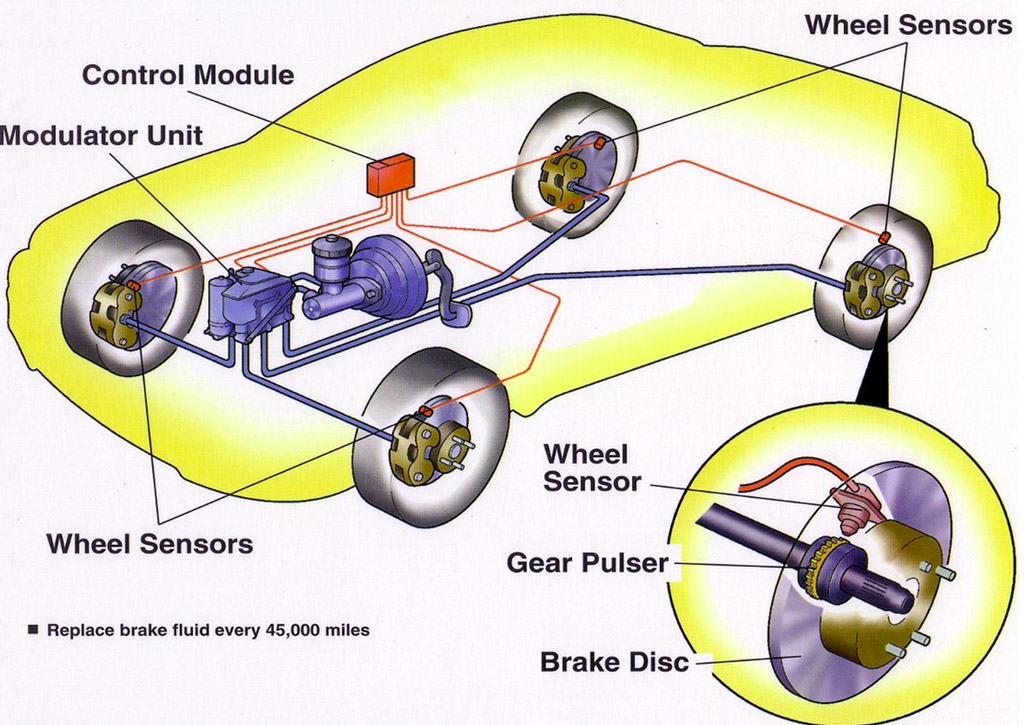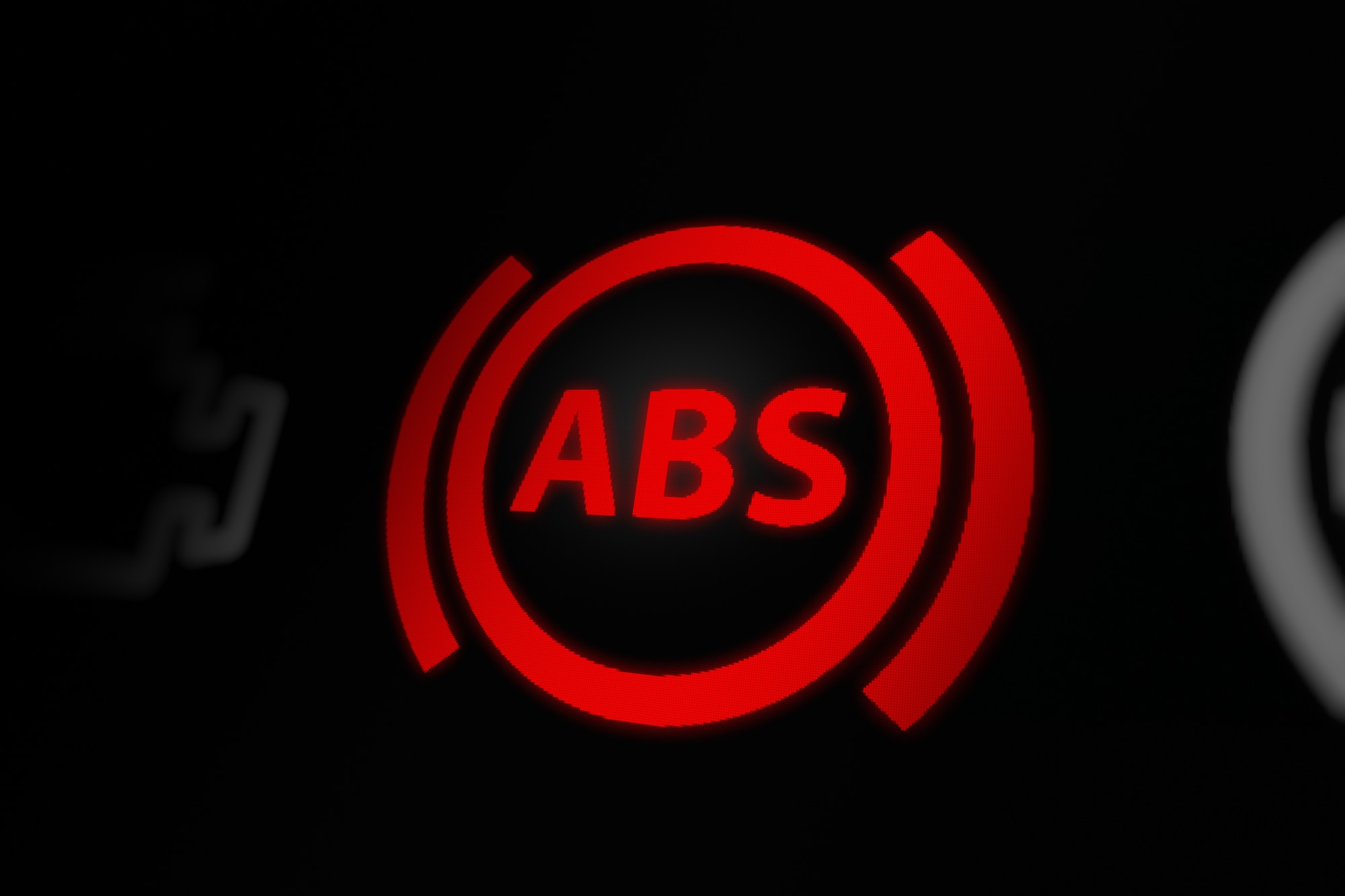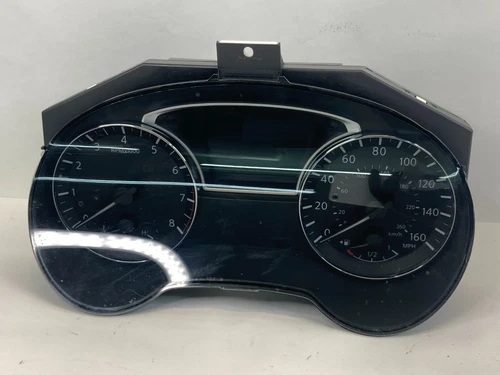
Step on the brakes with safety and confidence, learn how ABS works
Step on the brakes with safety and confidence, learn how ABS works
ABS anti lock brake pump

Imagine you are driving through a slippery road because of the rain, in a sudden moment you have to brake abruptly to avoid crashing. Carpartmall is absolutely sure that the last thing you want is for your car to skid on the wet ground and you could lose control. Therefore, your knowledge of the ABS System must be accurate and reliable since in a moment of need you will need to access the ABS System, which quickly modulates brake pressure to maintain control and prevent your vehicle from veering off course.
The ABS system acts as a protective lock on the wheels, and in risky driving conditions it ensures that you stay on course. How does the ABS system work? What are the advantages? And, most importantly, how can you keep this part working smoothly?
Let's take a tour and get to know what is indispensable about this part, the considerations we must take into account for its maintenance and the problems it usually presents.
What is ABS?
ABS (anti-lock braking system) is a sophisticated safety feature that prevents the wheels from locking during emergency braking. Its main function is to maintain traction and steering control, even on slippery roads or in adverse conditions.
When you suddenly apply the brakes, the ABS system detects if either wheel is about to lock up by monitoring its speed. If it detects impending lockup, it modulates the braking pressure on that wheel, preventing it from skidding.
By rapidly applying the brakes, ABS ensures that the wheels maintain traction with the road surface, allowing you to steer the car while braking. This intervention helps you avoid obstacles and maintain control, reducing the risk of accidents.
Essentially, ABS acts as a safety net, giving drivers the confidence to brake hard in emergencies without fear of losing control.
ABS System Elements

- ABS speed sensor : in charge of defining the speed of each wheel and sending signals to the ECU ( auto part found in our store).
- Rotation sensors: provide information to the ABS module when one of the wheels starts braking.
- ABS control unit: checks the rotation sensors and reacts to signals from the speed sensors.
- Valves: there is a valve in each brake pipe controlled by the ABS module, responsible for lowering and releasing the braking pressure.
- Pump: they are filled with hydraulic fluid that applies pressure to the brake drums or calipers when the brakes are applied.
- Brake fluid : transfers force from the hydraulic lines to the braking mechanism near the wheels. Because brakes produce a lot of heat, brake fluid has a high boiling point for efficient operation.
- Connectors: transmits information from ECU to ABS.
Advantages of the ABS System
- Shorter braking distance: by stopping the car more efficiently, ABS reduces braking distances, which is crucial to avoid collisions, especially in emergencies.
- Prevents uneven tire wear: with ABS in action, the wheels do not lock during braking, which prevents uneven tire wear. This ensures that your tires maintain optimum grip and longevity.
- Reduces wear on brake components: Traditional brake systems can subject brake pads and discs to excessive wear (which can make them quicker to replace). ABS mitigates this problem by regulating brake pressure and reducing wear on these critical components.
In short, ABS is not just about stopping your car, it's about stopping safely and efficiently. From shorter stopping distances to reduced wear on critical components, the advantages of ABS make it a must-have feature for any vehicle. Consider purchasing original equipment manufacturer (OEM) parts for your car to ensure its operability.
Common ABS System Failures
Despite their reliability, these automotive parts are not immune to problems. It is essential to know the most common ABS system failures in order to prevent or fix them quickly.
Sensor malfunction: Over time, sensors can become contaminated with dirt, debris or brake fluid, resulting in inaccurate readings. When sensors do not detect wheel speed correctly, ABS may activate unnecessarily or fail to activate when needed, compromising overall braking performance.
Pump failures: The ABS pump comprises several mechanical and electronic components that can wear out over time or fail to function. Pump failures can manifest as a loss of ABS functionality, resulting in a soft brake pedal or total brake failure in extreme cases. This is a major safety risk and deserves immediate attention.
Electrical problems: Electrical hobgoblins can also poke their head into ABS systems, causing intermittent ABS warning lights or erratic ABS behavior. Wiring harnesses, connectors and control modules are susceptible to corrosion, abrasion or poor connections, leading to communication errors within the ABS.
Maintenance issues: Periodic inspections, sensor cleaning and diagnostic checks can help identify and address problems before they become major issues. If you notice unusual noises, warning lights or a decrease in braking performance, seek professional assistance. Remember, a well-maintained ABS is your best defense against surprises on the road.
Motivated by experience, knowledge about the ABS System and the need to have the part in good condition, Carpartmall offers you the best original parts in different brands and models, in our store you can find exclusive variety for your car, guaranteeing the functionality, quality, attention, delivery of the product and any other process that communicates the customer with his need. Do not miss the discounts we offer.








